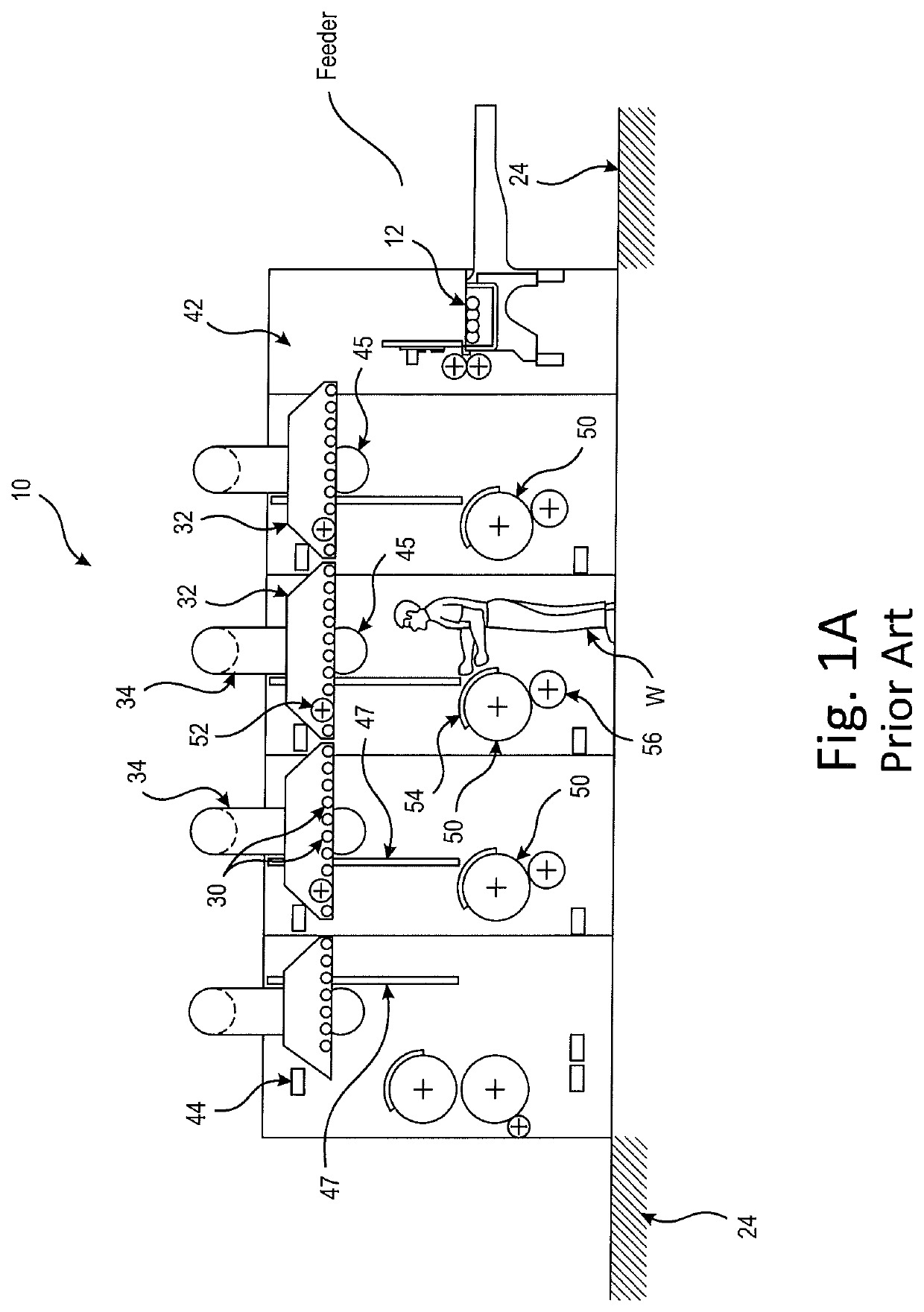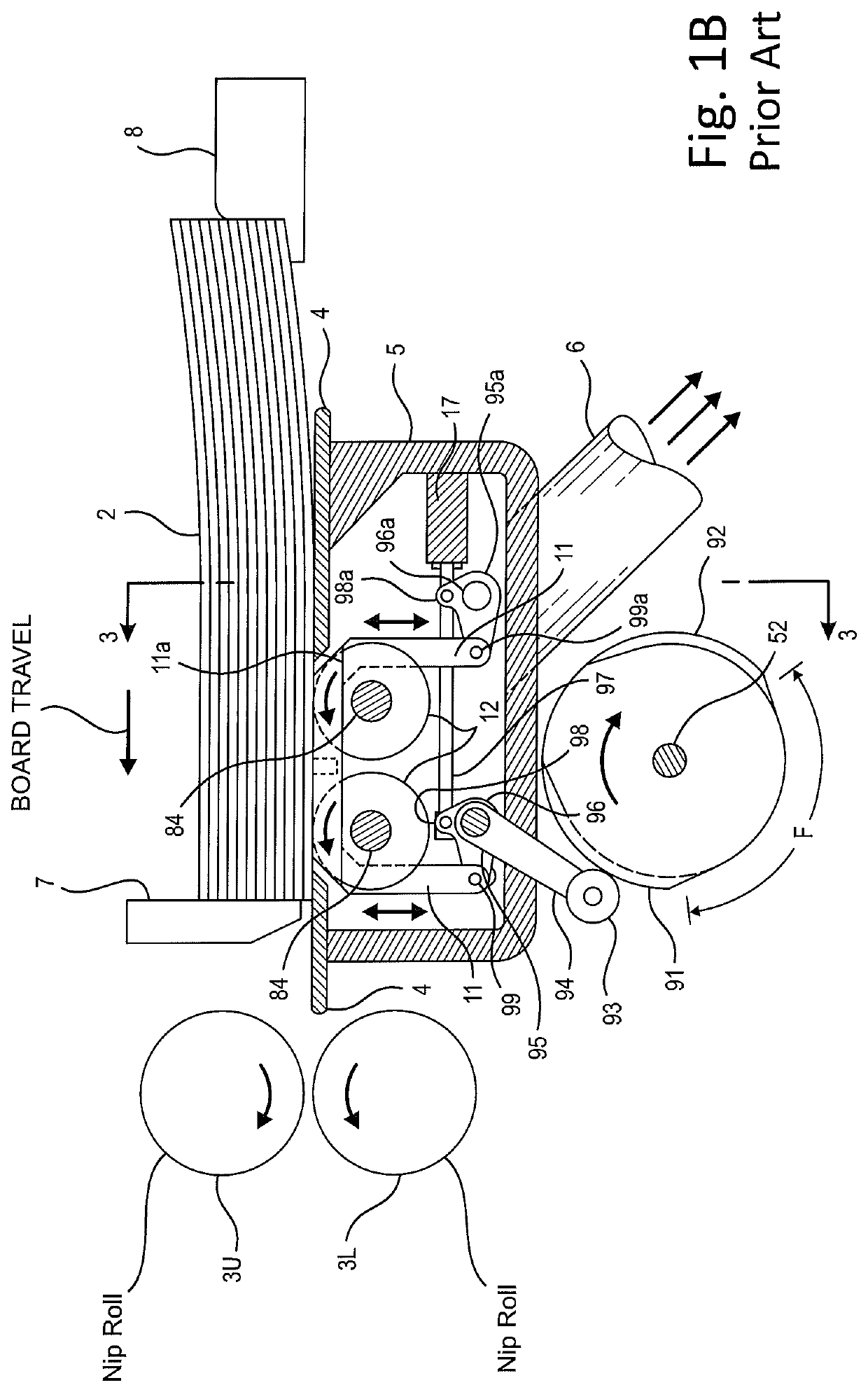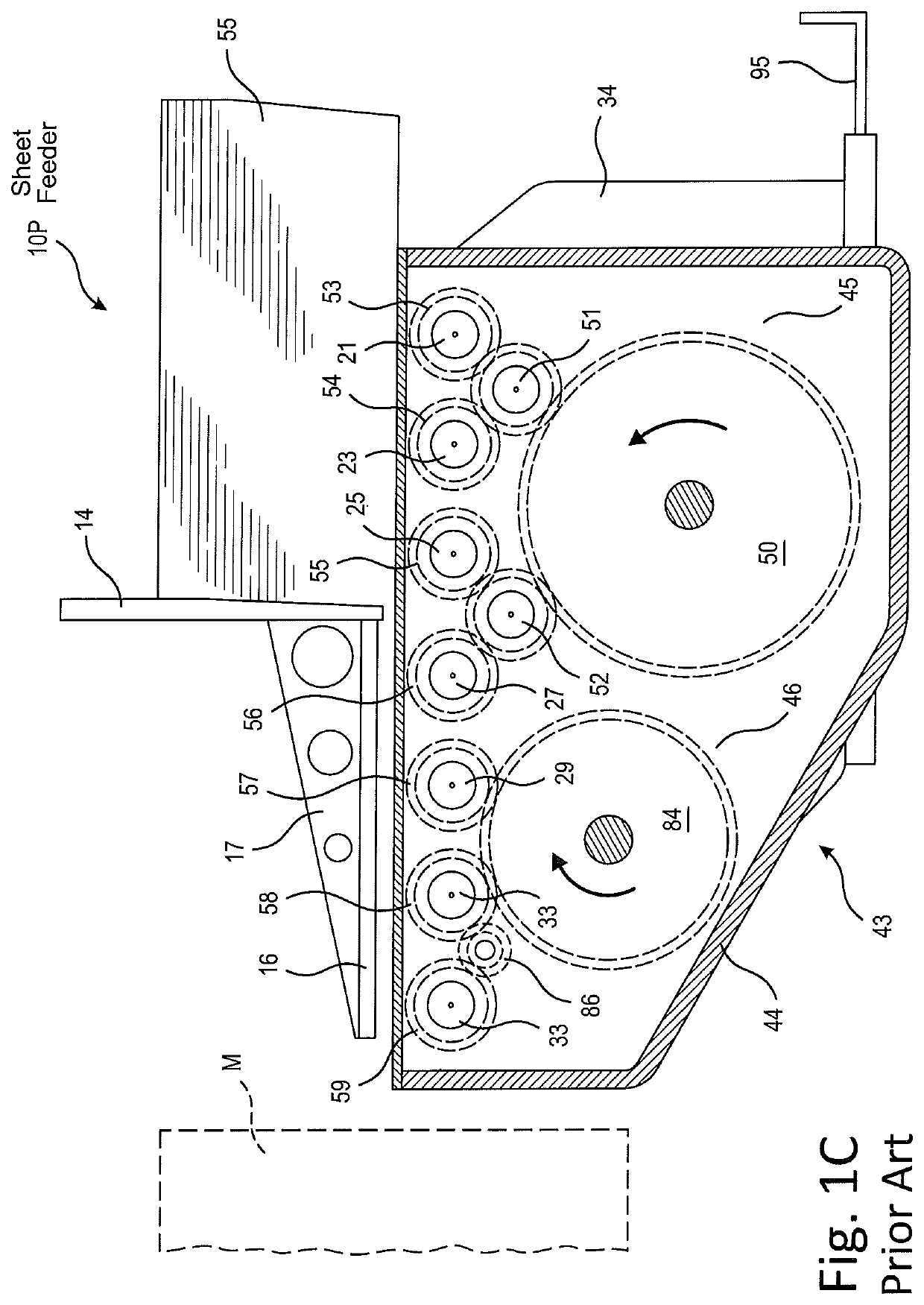No-Feed-Roll Corrugated Board or Paperboard Sheet Feeder Retrofit Apparatus and Method
a feeder and no-feed roll technology, applied in the field of no-feed-roll corrugated board or paperboard sheet feeder retrofit apparatus and method, can solve the problems of affecting the quality of the printed material, requiring expensive down-time for feed roll replacement, and becoming an excessively costly and time-consuming process, so as to achieve the effect of easy and less expensive retrofi
- Summary
- Abstract
- Description
- Claims
- Application Information
AI Technical Summary
Benefits of technology
Problems solved by technology
Method used
Image
Examples
Embodiment Construction
[0034]Turning now to a more detailed description of the present invention, as illustrated in FIGS. 2-7, the sheet or board feeding system 200 and method of the present invention does not require a mechanical drive input from or mechanical coupling with the host machine (e.g., a finishing machine for folding or making boxes from corrugated boards or sheets 10 or M) and instead is an entirely self-contained unit 200 which is driven with one or more motors, using sensed velocity or speed data from the host machine (10 or M) only as a speed reference. Critical functions performed by a feed table of sheet feeding system 200 are parameterized such that they can be scaled to different machinery with a change in a program stored in and executed by controller 300 in sheet feeding system 200. The host machine (e.g., 10 or M) is preferably modified or configured to be attached to the system's feed table 210. In the event that one or more nip or feed rolls (e.g., 3U, 3L) is a necessary componen...
PUM
 Login to View More
Login to View More Abstract
Description
Claims
Application Information
 Login to View More
Login to View More - R&D
- Intellectual Property
- Life Sciences
- Materials
- Tech Scout
- Unparalleled Data Quality
- Higher Quality Content
- 60% Fewer Hallucinations
Browse by: Latest US Patents, China's latest patents, Technical Efficacy Thesaurus, Application Domain, Technology Topic, Popular Technical Reports.
© 2025 PatSnap. All rights reserved.Legal|Privacy policy|Modern Slavery Act Transparency Statement|Sitemap|About US| Contact US: help@patsnap.com



